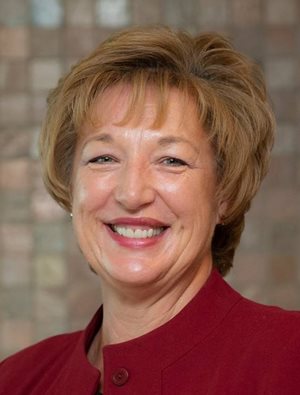Last week the Africa Brand Summit was held as a virtual and in-person hybrid event, where brand summit speakers and delegates from all over the world came together to propose lasting solutions that could help progressively improve Africa's brand image.

Prisa president, Dr Dalien Rene Benecke – senior lecturer Communication at the University of Johannesburg.
On Day 1, Dr Dalien Rene Benecke, Prisa president and senior lecturer of communication at the University of Johannesburg, presented on the role PR and communication play in helping city, regional/provincial and country government communicate better in times of crises. She also explained how they can separate spin-doctoring from authentic PR and communication. Below follows a brief overview of her presentation.
Benecke started by unpacking what PRs should do when communicating during a crisis and said a multi-disciplinary, international and cross-cultural approach to crisis communication is needed more than anything else. She added that: "We need to ensure that we as public relations and communication industry create the engagement opportunities and platforms for people to answer their own questions, and we provide them with the information to assist them in making their decisions and answering their questions."
She said the answer for her as to what PRs should be doing is to make sense. Not with an agenda from an organisation but for people to make up their own minds or make sense of what it is that they're going to have to deal with, i.e. Covid.
Benecke also said that when people don't know where to find information, fake news happens. "People do not know where to find information. That's why we have fake news. That's why we have people coming up with their own ideas based on their own agendas, based on their own understanding of it."
Filling the gap... from fake to facts
Benecke said to help fill the gap and separate fake news from facts, we need to:
- Focus on developing critical consumers of news
- Focus on media and PR literacy - not just amongst formal scholars/students/communicators that are formally tasked with this but also the consumers of the news that PRs put out there
- PRs need to move beyond fake news to authentic facts, especially during a crisis
- PRs need to acknowledge local wisdom and influence and should move away from top-down, mass media distribution of information (which is not communication) but from the bottom up - she explained from the grassroots communication needs that people have. She said this is essential for understanding and changing the stories
Benecke spoke about a partnership with Ornico, a media monitoring firm, that set up a series of analysis each week, focused on what the media coverage was around Covid during the first three months of the pandemic. Bizcommunity published the reports. Read them here.
She said they used the information to track the sentiment of the media and also how that presented later on social media. They also measured which organisations and which media houses presented what kind of facts which are the media or the reporters that presented and was the most mentioned. What type of underlining narrative was actually presented by organisations. She said all of these facts were readily available to them as communicators in South Africa via Ornico and Prisa.
Developing critical consumers of information
Benecke said the need for them as public relations professionals and what they should be doing include developing public relations literacy among consumers, as a sub-section of media literacy. Public relations literacy has been conceptualised as 'the ability to identify, analyse and evaluate public relations messages (Public relations literacy: Developing critical consumers of public relations, Coombs and Holladay, 2013).
She asks how public relations messages are constructed and perhaps re-constructed through situations of framing and proposing a response from the community members. She said that the literacy issue comes from the critical theory of public relations, looking specifically at the power relations that is exerted and the influence that messages have.
"So we're moving away from just compiling information according to our normal practices where we get a strategy together; based on research, based on understanding the stakeholders, based on the most efficient way to communicate with them, and then just getting the information out. The emphasis is on the bottom-up, on the person who is going to consume the information and actually asking them to co-design the messages that they understand are important for us."
Distinguishing between fake news and spinning
Benecke asked, "How do we normally distinguish between these?" She said there are many suggestions on how PR professionals do this. But she said media literacy is to develop in consumers a critical mindset of how they consume information. She said that's the only understanding that she has of how to deal with fake news. She stated that fake news is going to be with us still for a very long time and mentioned that there are also a number of examples of how PR professionals in their own industry have abused their licence to practice and how they have infringed on their own ethical codes. She used Bell Pottinger as an example.
She said the subtle use of information has really been at the heart of how PR, and as an industry, they should really ask themselves if they have always acted in good faith.
Benecke said that to her the distinction between fake news and spinning is quite clear:
- If PRs provide factual information to their audiences and to the people who are going to consume the news, they need to be open and transparent as to the biases behind the messages. She said they need to explain to their consumers when it is a paid/sponsored set of information and on whose behalf they are actually acting.
- Source credibility, accuracy, timeliness and completeness, alternative sources of information, i.e. Africa Check, Spinwatch. There must be credibility in the facts that they are presenting. Not how they are framing the information so that it suits somebody's agenda, but actually ask what are the facts?
- Check: emotions, facts, golden rule, take responsibility for actions.










































